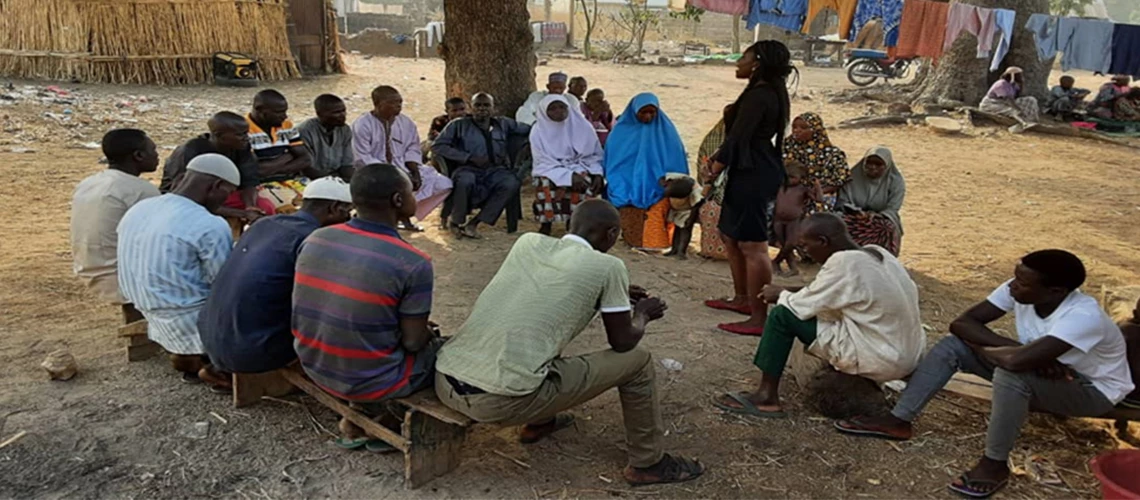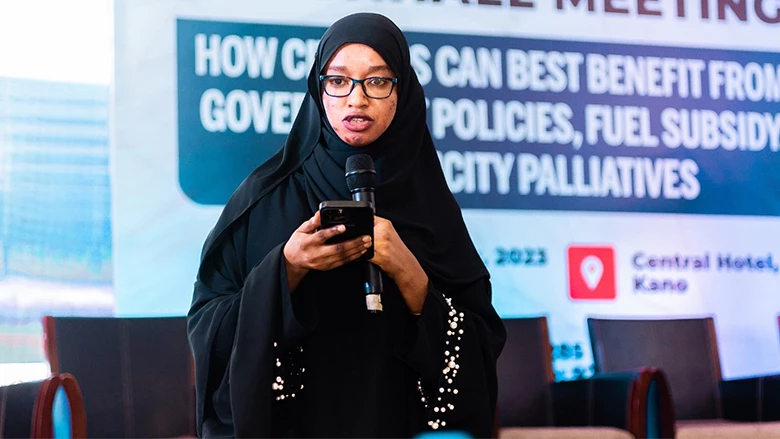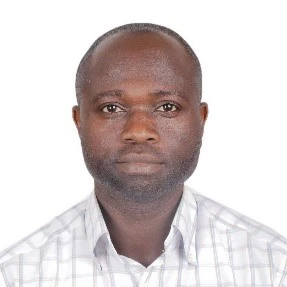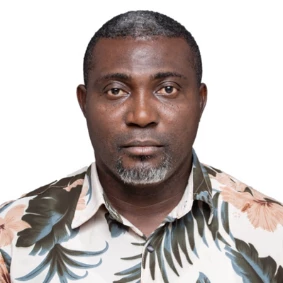 Community members gather as CSO representative and PAV member Rejoice Sonoko Manassehluy engages them on the Federal Government Intervention Programme. Nasarawa, Nigeria. Credit: World Bank
Community members gather as CSO representative and PAV member Rejoice Sonoko Manassehluy engages them on the Federal Government Intervention Programme. Nasarawa, Nigeria. Credit: World Bank
In Nigeria, the World Bank is forging deeper ties with civil society to foster impactful and inclusive development initiatives.
The Partnership for Amplified Voices (PAV), launched in November 2022, stands as an innovative partnership between the World Bank and civil society organizations (CSOs). It aims to bolster the efficacy and accountability of public institutions and systems for service delivery. PAV achieves this by facilitating CSO involvement in key development agendas and priorities outlined in the Bank’s Country Partnership Framework for Nigeria.
At the forefront of CSO representation within PAV are two non-government organizations (NGOs): the BudgIT Foundation and Connected Development.
A platform for dialogue
PAV serves as platform for fostering information exchange, raising awareness, and promoting collaboration among CSOs across various thematic areas and grassroots and national levels. The Bank facilitates regular consultations with PAV members on Bank-financed projects and awareness-raising events, such as those focusing on the application of Grievance Mechanisms in Bank-financed investments. Moreover, a series of Public Policy Dialogues (PPDs) brings together a diverse array of stakeholders, including PAV members, religious leaders, business community representatives, media organizations, students, workers, and professional unions. Additionally, it serves as a central hub for keeping participating CSOs informed about PAV’s activities and facilitating inter-CSO exchange.
Empowering communities for greater impact
Over 400 CSOs have benefitted from heightened awareness regarding Bank-financed projects. Mathew Oladele, Executive Director Initiative For Social Development in Africa (ISODAF) operating in the Niger, Benue, and Kwara States of the North Central Region of Nigeria, notes that his organization now possesses a deeper understanding of programmes supported by the World Bank, such as the Nigeria for Women Programme and the Nigeria COVID-19 Action Recovery and Economic Stimulus.” Other notable projects that have actively engaged civil society through PAV include the Subnational Financial Transparency, Accountability, and Sustainability program, the National Social Safety Net Programme, Transforming Irrigation Management in Nigeria, and various initiatives within the electricity sector.
 A participant speaking at a PAV meeting on Nigeria’s fuel subsidy reform that brought together a range of CSOs. Kano, Nigeria. Photo: © World Bank.
A participant speaking at a PAV meeting on Nigeria’s fuel subsidy reform that brought together a range of CSOs. Kano, Nigeria. Photo: © World Bank.
The first PPD, which centered on Nigeria's fuel subsidy, called for the elimination of fuel subsidies and the redirection of funds into productive sectors to benefit the most vulnerable groups. Subsequently, the government has implemented the removal of the fuel subsidy.
PAV has facilitated the formation of new thematic partnerships among CSOs, particularly within the electricity sector, leading to enhanced energy solutions. In 2024, the Initiative for Social Development in Africa (ISODAF) utilized PAV partnerships to restore power to communities in the Mai Angwa and Timber Shed areas in Minna, Niger State, following power outages caused by damaged poles. ISODAF became aware of the grievance through their radio program on citizen engagement and successfully enlisted government authorities to restore power to the community at no cost.
The path forward
PAV’s experience underscores that investing in CSO partnerships, rather than individual organizations, ensures that development reaches communities effectively and sustainably.
Moving forward, PAV will prioritize:
- Enhancing awareness and capacity among CSOs to effectively support the implementation of ESS 10: Stakeholder Engagement and Information Disclosure, a crucial component of the Bank’s Environmental and Social Framework (ESF);
- Deepening engagement with CSOs on social inclusion, with a particular focus on women, youth, and vulnerable people.
- Strengthening collaboration with development partners such as the United Kingdom’s Foreign Commonwealth and Development Office, USAID, and the EU to bolster support for PAV’s engagement across the country.
PAV stands as a beacon of hope within Nigeria's development landscape. Its innovative approach to fostering partnerships with CSOs and promoting citizen engagement in development initiatives holds the potential to contribute to more inclusive public policies, enhance trust in institutions and facilitate lasting solutions to societal challenges.
* Key guidance was provided by Nicolas Perrin with contributions from Mansir Nasir and Adaorah Chisom Oduah



Join the Conversation